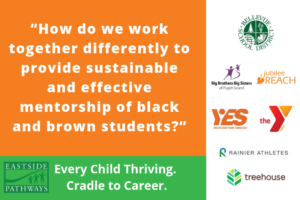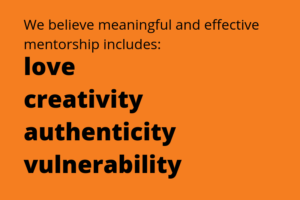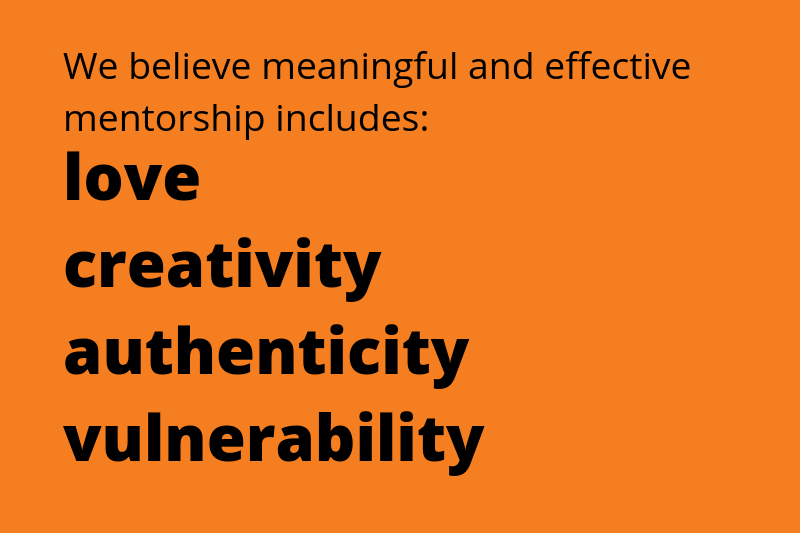There is a movement to look beyond academic outcomes to include “whole child” measure to bridge the achievement gap, particularly with our students of color. Over the last few years Bellevue School District (BSD) has been leading by developing one-day experiences like BOOM & SHOUT, integrating socio-emotional learning into their strategies and convening community to discuss the impacts of racism.
As BSD’s leadership tuned into youth voices the theme of mentorship emerged, particularly with folks who “look like” the youth. Youth stated that “they really care about me… it’s not just about my grades or my attendance”.
 In hopes of scaling up solutions that were working, BSD’s Judy Buckmaster and Dr. Randy Nunez, sent out a call to action to “out of school time providers” to explore how they could work together to increase capacities and alignment. The group – including leadership from Big Brothers Big Sisters, Jubilee Reach, Rainier Athletes, Treehouse, Bellevue Family Y, and Youth Eastside Services – began meeting in Spring 2019. With the support of Eastside Pathway’s Executive Director Stephanie Cherrington and Community Impact Manager Kalika Curry, the group created a scoping question to focus the work: “how do we work together differently to provide sustainable and effective mentorship of black and brown students?”
In hopes of scaling up solutions that were working, BSD’s Judy Buckmaster and Dr. Randy Nunez, sent out a call to action to “out of school time providers” to explore how they could work together to increase capacities and alignment. The group – including leadership from Big Brothers Big Sisters, Jubilee Reach, Rainier Athletes, Treehouse, Bellevue Family Y, and Youth Eastside Services – began meeting in Spring 2019. With the support of Eastside Pathway’s Executive Director Stephanie Cherrington and Community Impact Manager Kalika Curry, the group created a scoping question to focus the work: “how do we work together differently to provide sustainable and effective mentorship of black and brown students?”
To date the group has had four half-day convenings, investing 248 hours of staff time, developing a galvanized message for the current state, naming existing barriers and setting their sights on what is working.
Tina Morales, long time community leader and Youth Eastside Services leader, urged the group “we have to consider what matters to the youth, how they identify. Immigration status, community relationships, being an English language learner…”. Doubling down on her contributions Alma Gonzales, founder of NISO, shared her experiences as a mentor and mother of BSD students “we have to also consider including the families”. The group shared a deep compassion for the youth and identified the weight of “once being that kid”.
In the mid-June meeting clinical social worker and Bellevue Family Y board member, Michelle Williams-Clark, shared her experiences in supporting students through racial trauma. “We have to treat racial trauma like we do all other forms of trauma. Listen, believe, report and support. There has to be accountability, action and most importantly prioritization of the youth’s safety”. All the participants share the responsibilities and training being mandated reporters and echoed a desire to gather more tools to support youth in all forms of trauma.
 In order to chart a course for success, the group discussed the “secret sauce” to meaningful mentorship, sharing best practices, and reveling in the resilience of youth and their families. The group has concluded this phase in their adaptive leadership journey by creating a call to action statement:
In order to chart a course for success, the group discussed the “secret sauce” to meaningful mentorship, sharing best practices, and reveling in the resilience of youth and their families. The group has concluded this phase in their adaptive leadership journey by creating a call to action statement:
“Together we will mentor Black, Brown, Southeast Asian, and LGBTQ youth in Bellevue School District. We believe meaningful and effective mentorship includes: love, creativity, authenticity and vulnerability. To mentor or be mentored is a human right. Mentorship must be done intentionally and in partnership with parents/guardians. In order to serve we must decolonize our minds and hearts, while creating spaces where folks can safely share their unique stories and wisdom.”
At their upcoming meeting, the group will invite new stakeholders to refine strategies, develop tools for measurement, and make a public statement to hold themselves accountable to the community. The group has identified three priorities that they will be exploring:
- Practices and evaluation for continuous improvement, especially as it relates to systemic racism.
- Supporting mentors as “change agents” to lead collective action.
- Shifting mental models, ways of thinking, and practices away from the dominant culture and into collective culture.
To know more about this group, contact Kalika Curry

